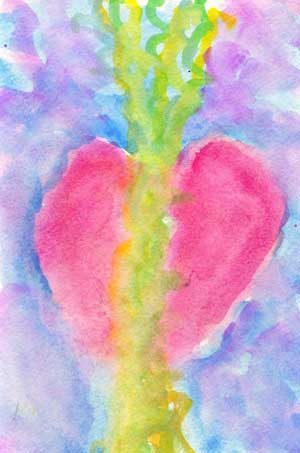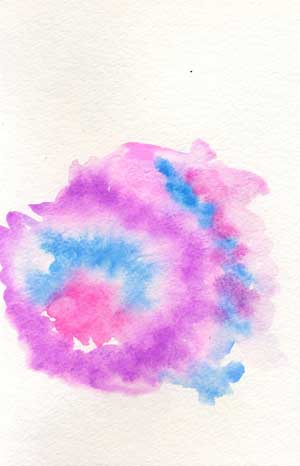You may have noticed that I am highly verbal. I remember, as a child, narrating my life out loud. ("She walked across the street." I remember exactly what street I was crossing when I realized I was narrating.) My tendency toward the verbal is the reason I'm a writer. As soon as I've written it down, I know what I'm thinking. Before that, it's a bit vague.
On the other hand, if I put words around something, it becomes trapped. For instance, if I call something "unforgivable," it's hard to open to other possibilities.
My first image of forgiveness was light flowing through an open heart.
I wasn't happy, however, with the painting. I hardly ever like my paintings when they include known symbols or are representational. (In addition, something about this yellow does not say "light" to me…)
My next try
was more successful. It's prettier and it taught me more. This painting tells me that forgiveness is a softening, an opening. Sharp bits still exists, but now they give energy to the whole instead of making it hard and inflexible. Thinking about forgiveness as a process produced this:
On the left, the darknesses of life are pressing in on the light. What is unforgiven causes shadow and constriction.
In the center, forgiveness begins. The darkness is breaking up. Light is spreading, but things are chaotic and unsettled.
On the right is forgiveness. Light shines throughout. Though darkness is present, it has become a part of the whole.
The light shines in the darkness, and the darkness has not overcome it. (John 1:5)















